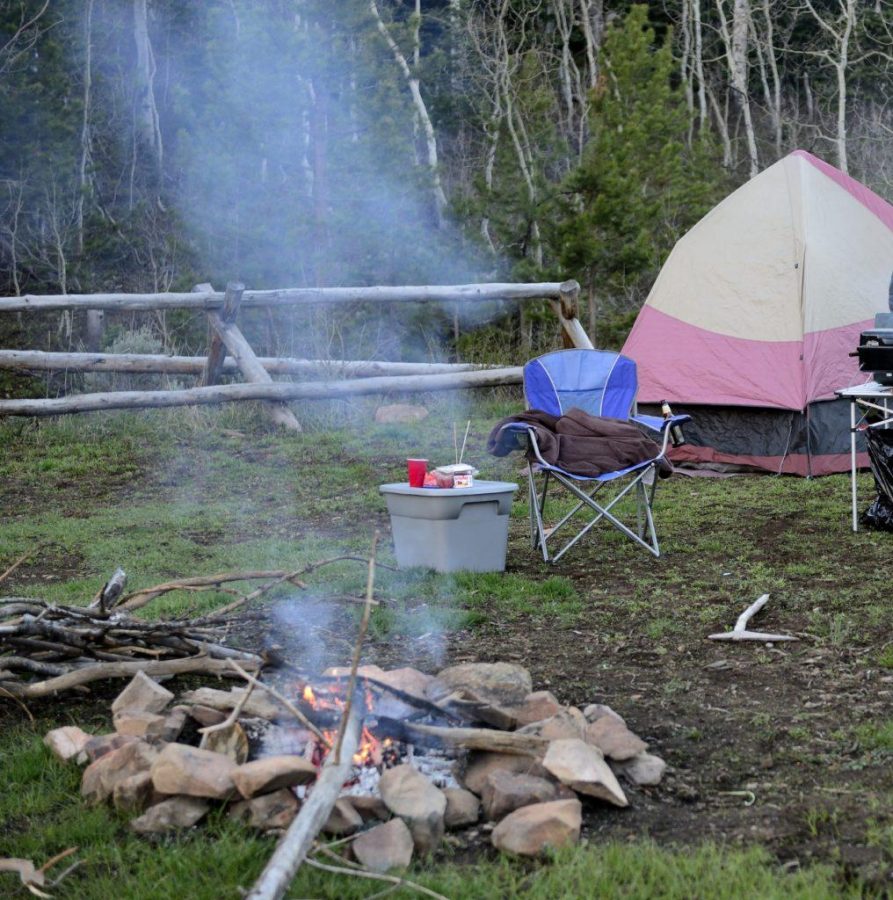In 2016, there was an abundance of news stories about visitors defacing national parks by painting, spraying, and carving on monuments and structures. Many of the culprits have unwittingly called attention to themselves by posting their “art” on social media. In June of this year, Casey Nocket was banned from all National Parks and 524 million acres of public lands after she posted pictures of her graffiti on Instagram.
Actress Vanessa Hudgens carved her and her boyfriend’s name with a heart at a national forest in Arizona. After posting a picture on Instagram, she was caught by fans and faced a $1,000 fine. Public shaming of these individuals has hopefully dissuaded others from taking up the hobby of graffitiing public lands. However, while pointing fingers some may also be defacing the land in a different way. All too often, hikers and campers leave their trash behind, and these culprits are much harder to find.
As an avid camper, I don’t think I could count all of the campsites I’ve been to that included a pile of garbage. I’ve seen everything from beer bottles and snack packaging to used condoms and clothing. Utah has such a beautiful landscape, but stumbling upon used paper plates or an old, torn-up t-shirt ruins the aesthetics of the great outdoors.
It’s not just about looks; trash and debris also affect wildlife. Many animals are lured out of their homes by the scent of campfire leftovers, putting them in harm’s way. Some food is not safe for animals to consume, and smaller rodents can get trapped inside containers or bottles left behind. Many animals confuse packaging for food and inadvertently poison themselves. Debris left near rivers and streams cause build-ups and leave residue that could be toxic to aquatic animals. In Utah, littering is currently considered a Class B misdemeanor and carries a $100 fine.
For as many state and national parks that Utah has, there is a comparable number of primitive campsites run by the Bureau of Land Management (BLM) that are free and accessible to the public. The BLM manages over 245 million acres of public lands each year, and even with around 10,000 employees, it’s a lot of ground to cover.
Littering is a huge problem, but there are several ways to fight it. The first step is to take personal action. If you’re a hiker, carry a small plastic bag with you to pick-up litter. Campers should pack out their litter and take advantage of the trashcans that are available at most campsites. Use switchbacks and drive on designated roads. Call someone out (with respect, please) if you see them carving into a tree or dropping a stray candy wrapper on the ground. Every little bit helps.
The BLM and other organizations are always looking for volunteers to clean up the outdoors. The Leave No Trace Center for Outdoor Ethics initiative is a nationwide organization takes volunteers to clean up hiking trails and campsites.
It’s important to remember that, even if we donate or pay entrance fees to access parks, when we travel deep into the great outdoors we are guests, and we should behave like the visitors we are.
Photo by Kiffer Creveling


